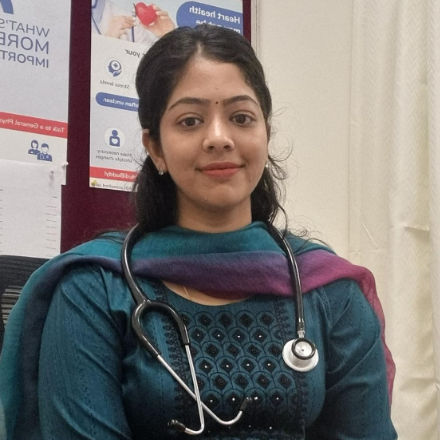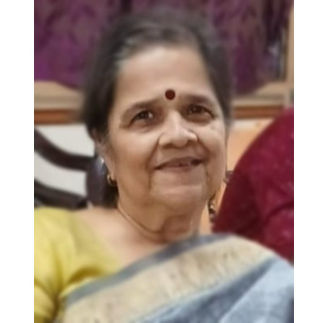Hemolytic Anemia Overview and Management
Know about the hemolytic anaemia, what is it, types, symptoms, causes, diagnosis, management and treatment.

Written by Dr. Rohinipriyanka Pondugula
Reviewed by Dr. Vasanthasree Nair MBBS
Last updated on 13th Jan, 2026

Introduction
Hemolytic anemia is a condition where red blood cells (RBCs) are destroyed faster than they can be produced, leading to fatigue, weakness, and other health concerns. If you or a loved one has been diagnosed with this condition, understanding its causes, symptoms, and management can help you take better control of your health.
What is Hemolytic Anemia?
Red blood cells carry oxygen from the lungs to the rest of the body. Normally, RBCs live for about 120 days before being replaced. In hemolytic anemia, they are destroyed prematurely (a process called hemolysis), leading to a shortage of healthy RBCs.
Consult the Best General Practitioner for Personalised Advice
Types of Hemolytic Anemia
1. Inherited Hemolytic Anemia – Caused by genetic conditions like sickle cell anemia, thalassemia, or G6PD deficiency.
2. Acquired Hemolytic Anemia – Develops due to infections, autoimmune disorders, medications, or certain cancers.
Symptoms of Hemolytic Anemia
Common signs include:
Fatigue and weakness
Pale or yellowish skin (jaundice)
Dark-colored urine
Shortness of breath
Rapid heartbeat
Dizziness or fainting
If you experience these symptoms, consult a doctor for proper diagnosis.
Causes of Hemolytic Anemia
1. Inherited Causes
Sickle Cell Anemia – Abnormal RBCs that break easily.
Thalassemia – Reduced hemoglobin production.
G6PD Deficiency – RBCs break down when exposed to certain foods or medications.
2. Acquired Causes
Autoimmune Disorders – The immune system mistakenly attacks RBCs.
Infections – Malaria, hepatitis, or Epstein-Barr virus.
Medications – Some antibiotics or pain relievers.
Blood Transfusions – If the donor blood is incompatible.
How is Hemolytic Anemia Diagnosed?
Doctors may recommend:
Blood Tests – To check RBC count, hemoglobin, and bilirubin levels.
Coombs Test – Detects autoimmune hemolytic anemia.
Genetic Testing – For inherited types.
Bone Marrow Test – To assess RBC production.
Management and Treatment
Treatment depends on the type and severity of hemolytic anemia.
1. Medical Treatments
Blood Transfusions – For severe anemia.
Immunosuppressants – If caused by autoimmune disorders.
Folic Acid & Iron Supplements – To support RBC production.
Splenectomy (Spleen Removal) – In chronic cases, as the spleen destroys RBCs.
2. Lifestyle and Dietary Tips
Eat Iron-Rich Foods – Spinach, lentils, red meat, and fortified cereals.
Increase Folic Acid – Found in leafy greens, beans, and citrus fruits.
Stay Hydrated – Helps prevent complications like gallstones.
Avoid Triggers – If you have G6PD deficiency, avoid fava beans, certain medications, and strong oxidants.
Rest and Exercise Moderately – Balance activity with rest to avoid fatigue.
3. Regular Monitoring
Follow-up blood tests to track RBC levels.
Watch for infections, as anemia weakens immunity.
When to See a Doctor?
Seek immediate medical help if you experience:
Severe fatigue or chest pain
Shortness of breath at rest
Sudden dizziness or fainting
Early diagnosis and treatment can prevent complications like heart problems or organ damage.
Conclusion
Hemolytic anemia can be challenging, but knowing the root cause, identifying symptoms and right treatment approach with proper care, many people lead healthy lives. If you suspect symptoms, consult a specialist for personalized treatment.
Consult the Best General Practitioner for Personalised Advice
Consult the Best General Practitioner for Personalised Advice

Dr. Rajib Ghose
General Physician/ Internal Medicine Specialist
25 Years • MBBS
East Midnapore
VIVEKANANDA SEBA SADAN, East Midnapore

Dr. Mainak Baksi
General Practitioner
13 Years • MBBS , MD (MPH)
Howrah
Mainak Baksi Clinic, Howrah
(50+ Patients)

Dr Suseela
General Physician
5 Years • MBBS
Bengaluru
Apollo Medical Center, Marathahalli, Bengaluru

Dr Aswathy D C
General Practitioner
6 Years • MBBS
Bangalore
Apollo Clinic Bellandur, Bangalore

Dr. Minakshi Dutta
General Practitioner
37 Years • MBBS
Bengaluru
Trini Healthcare Pvt Ltd, Bengaluru